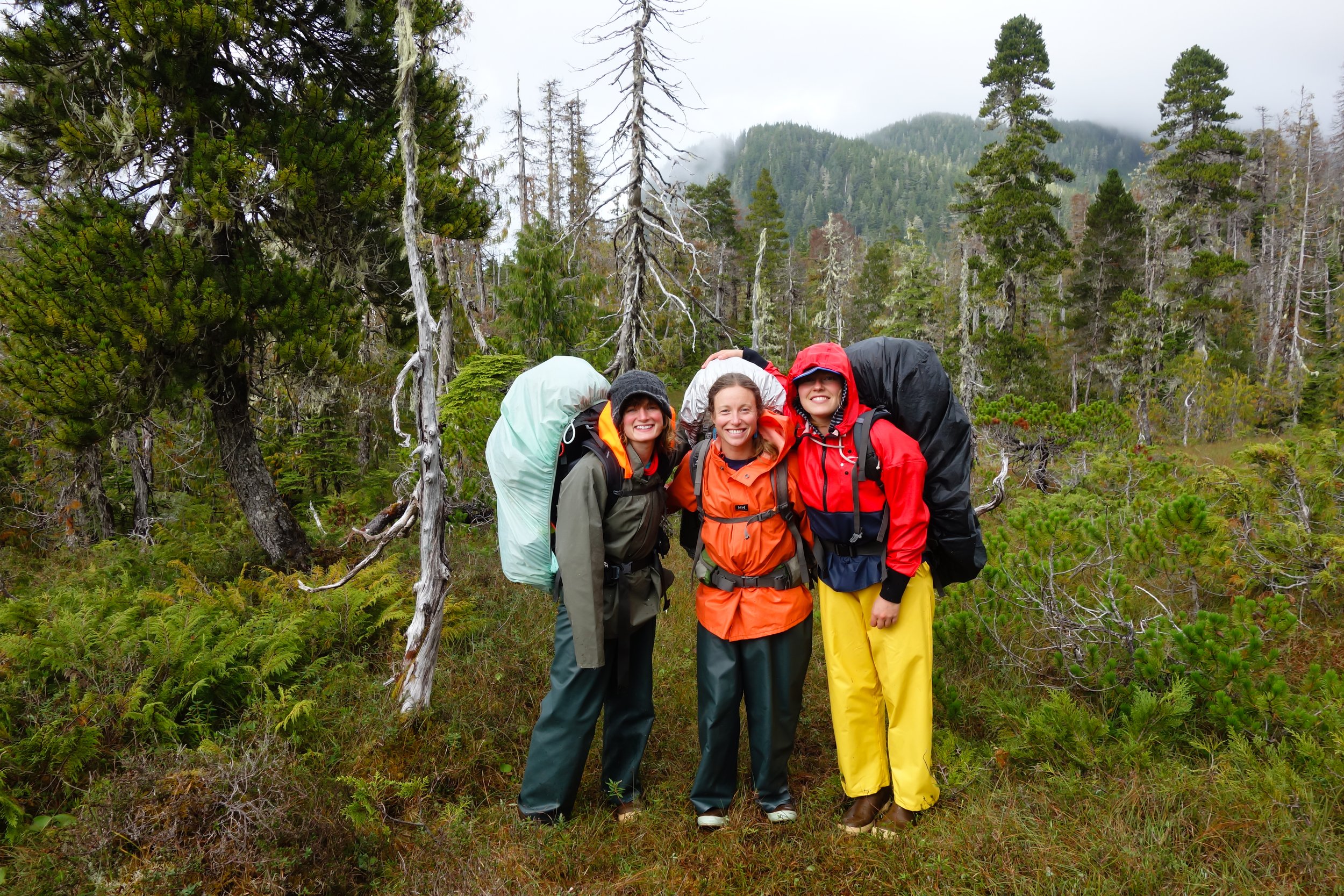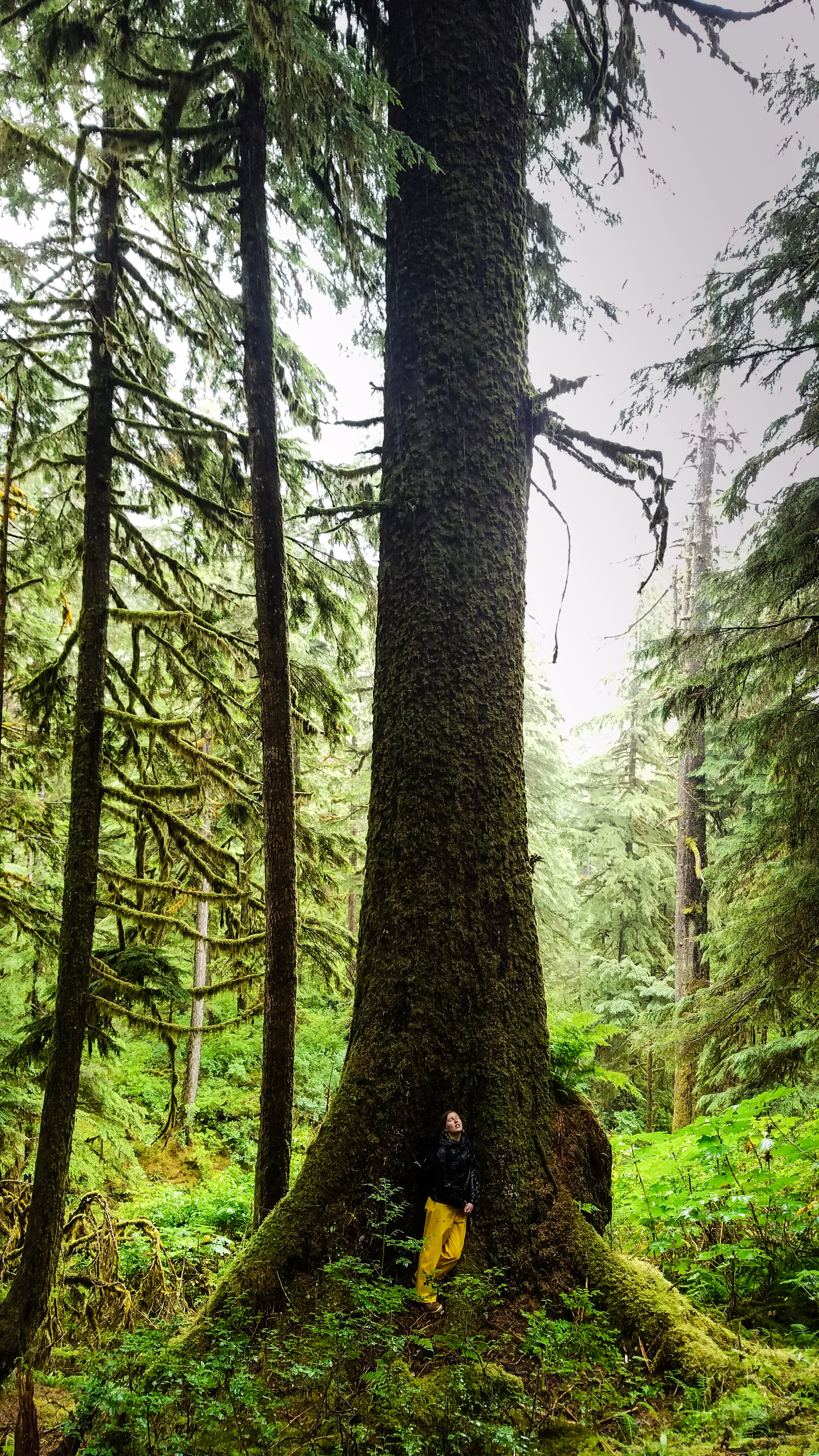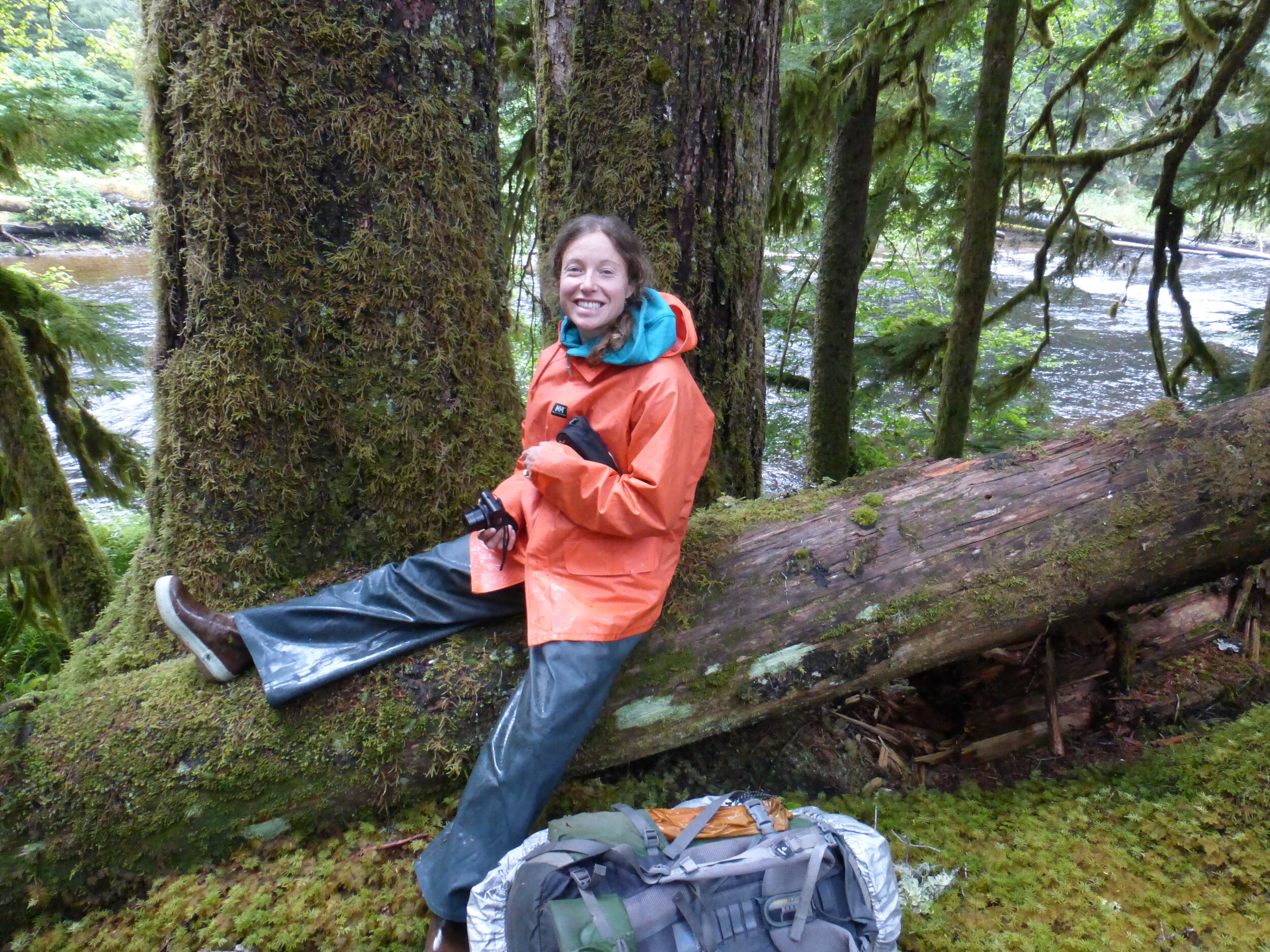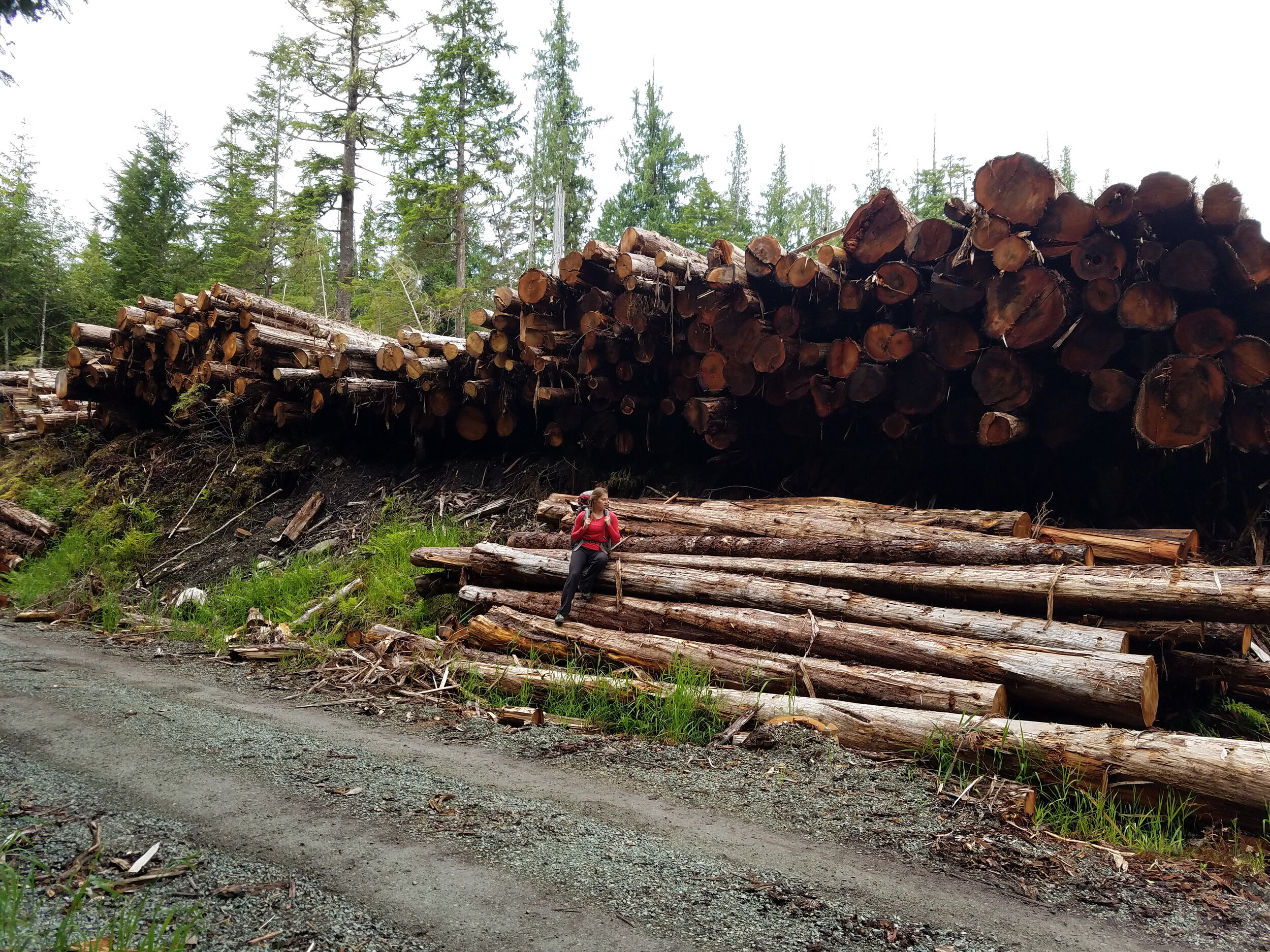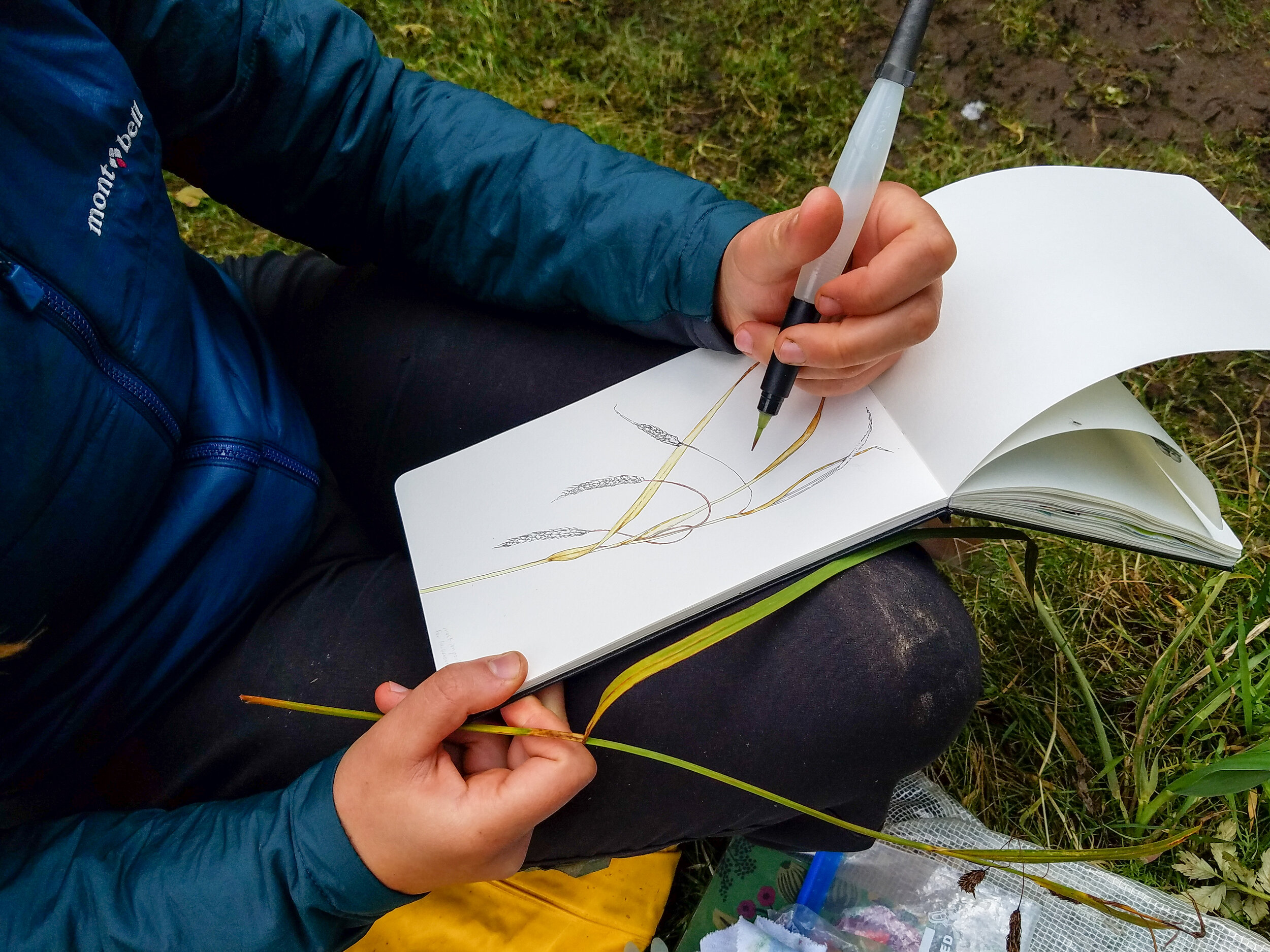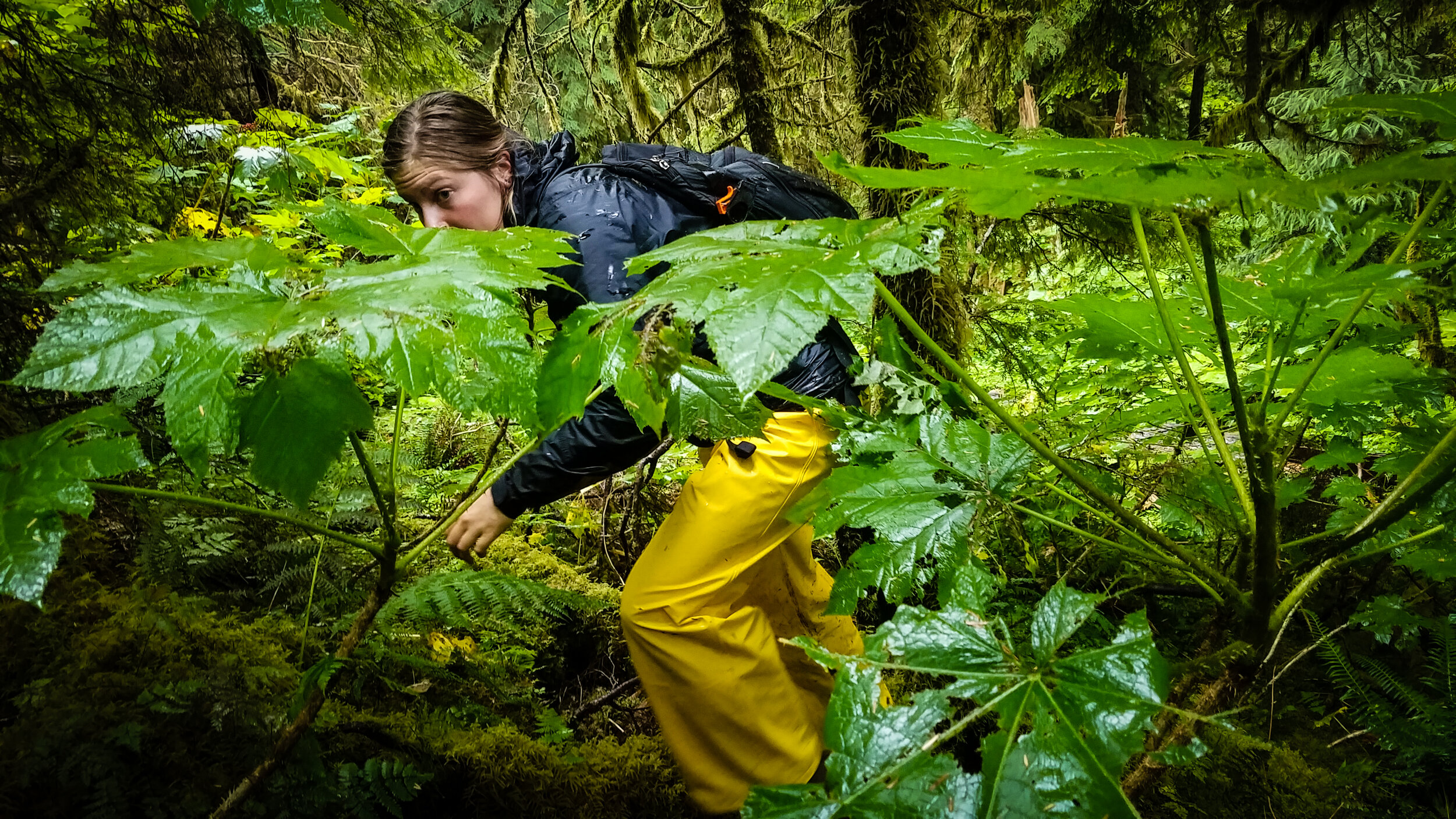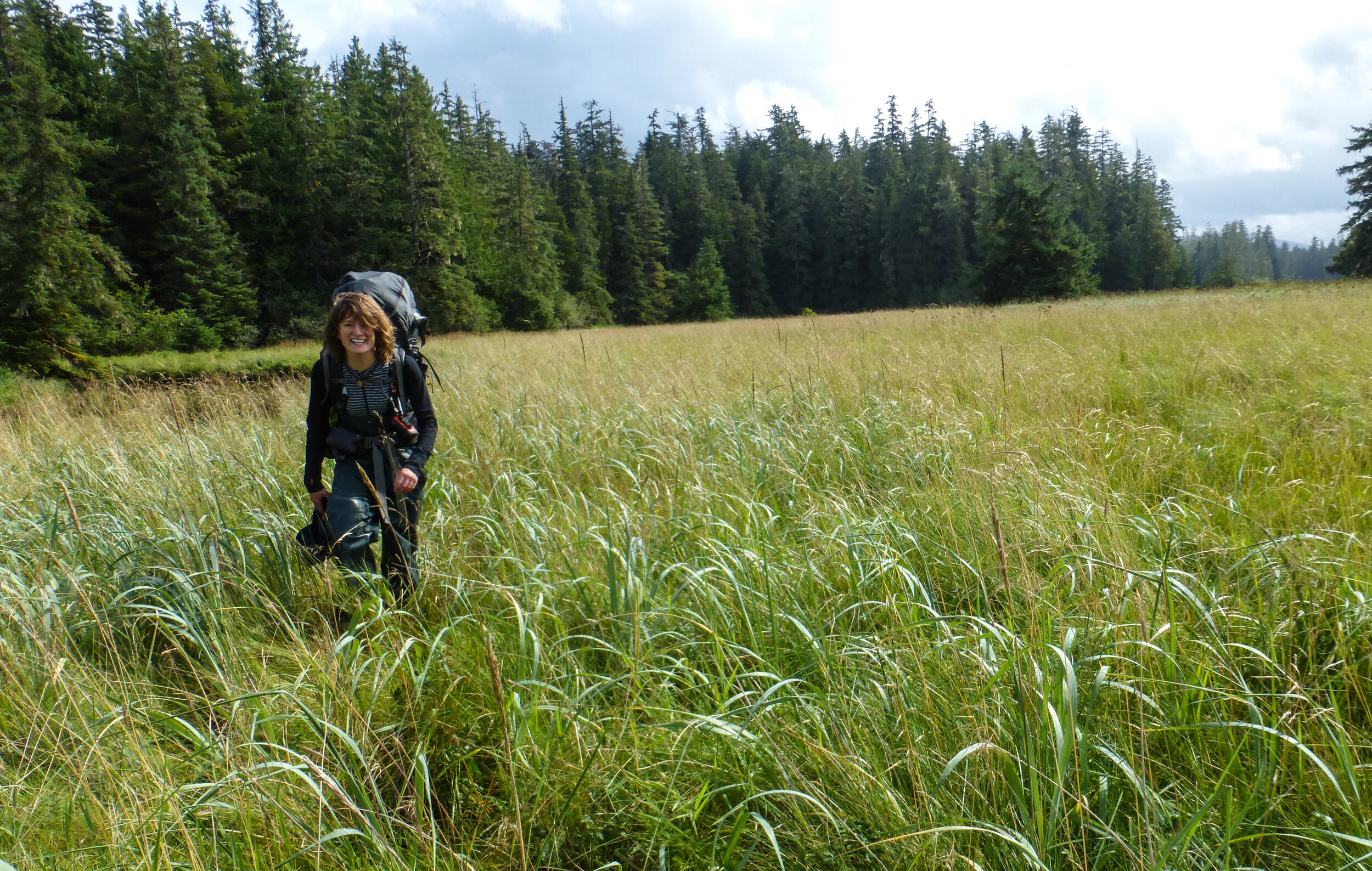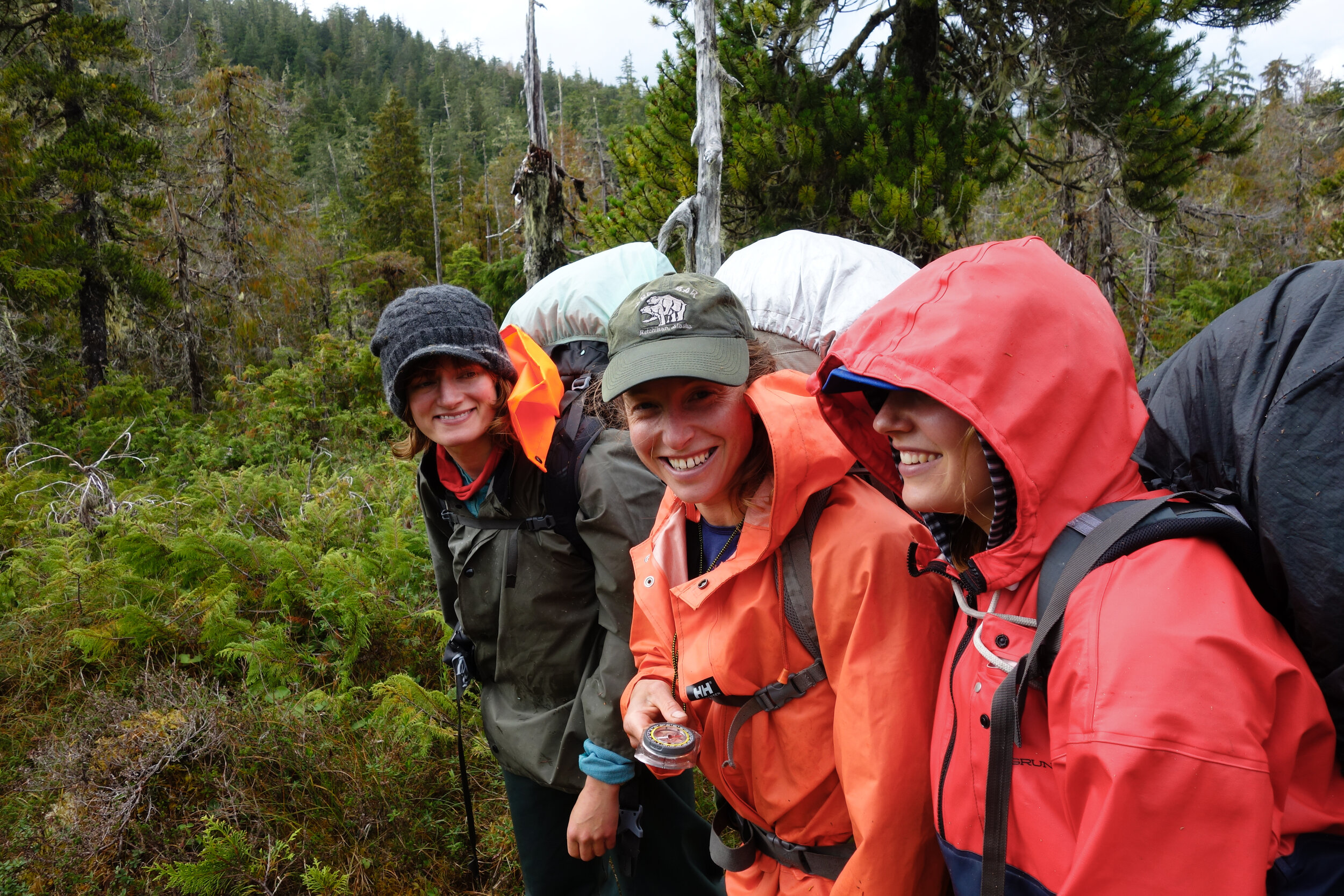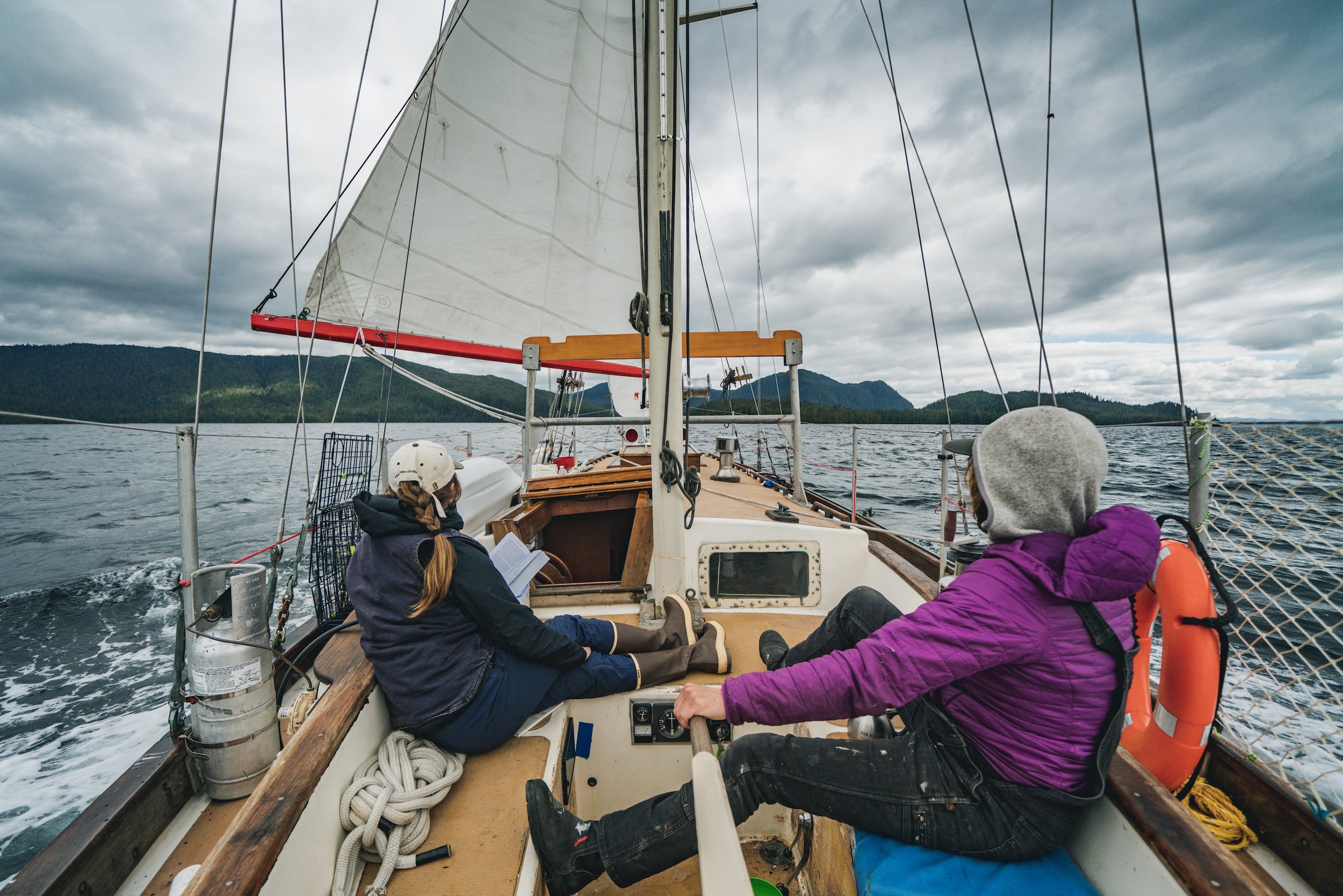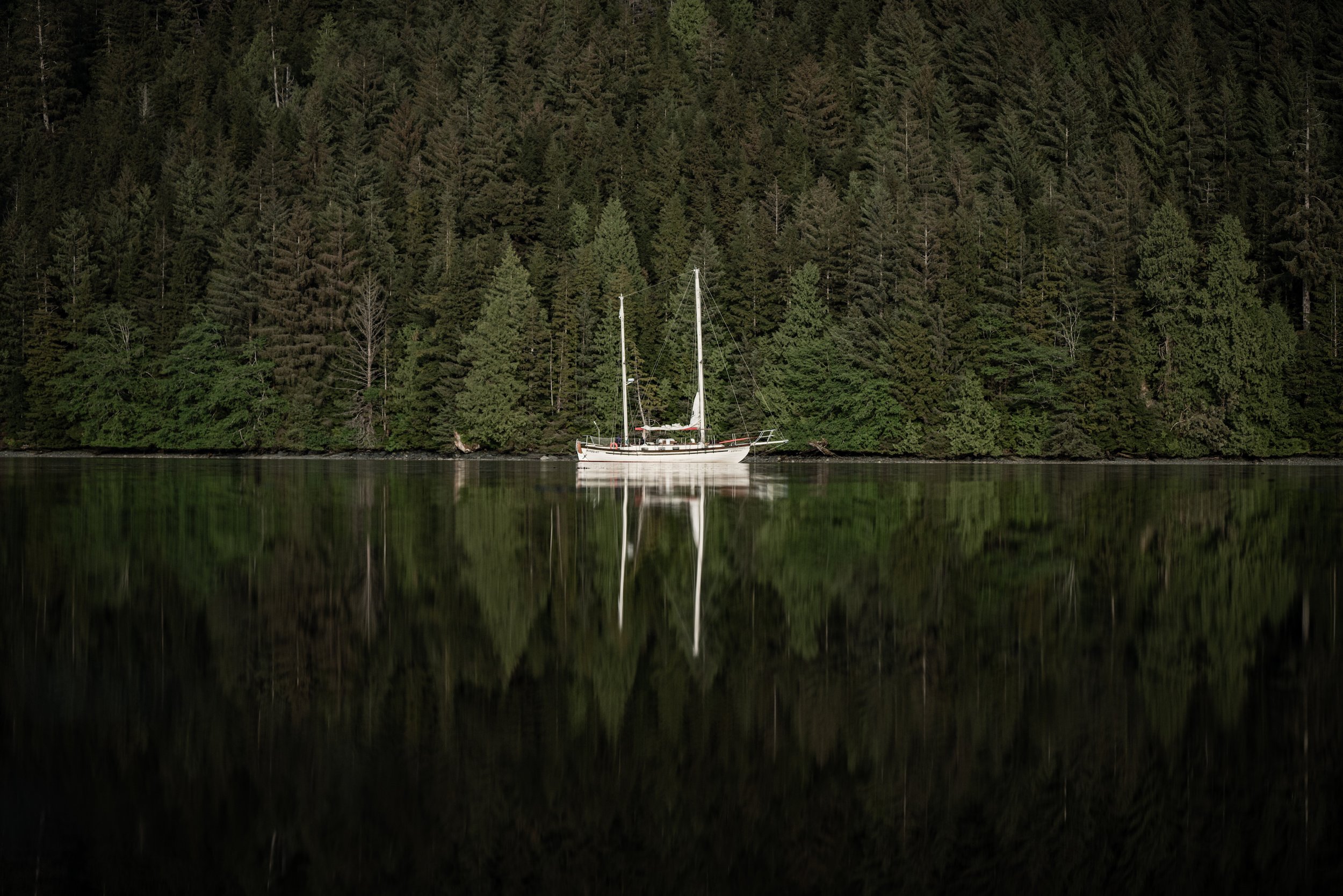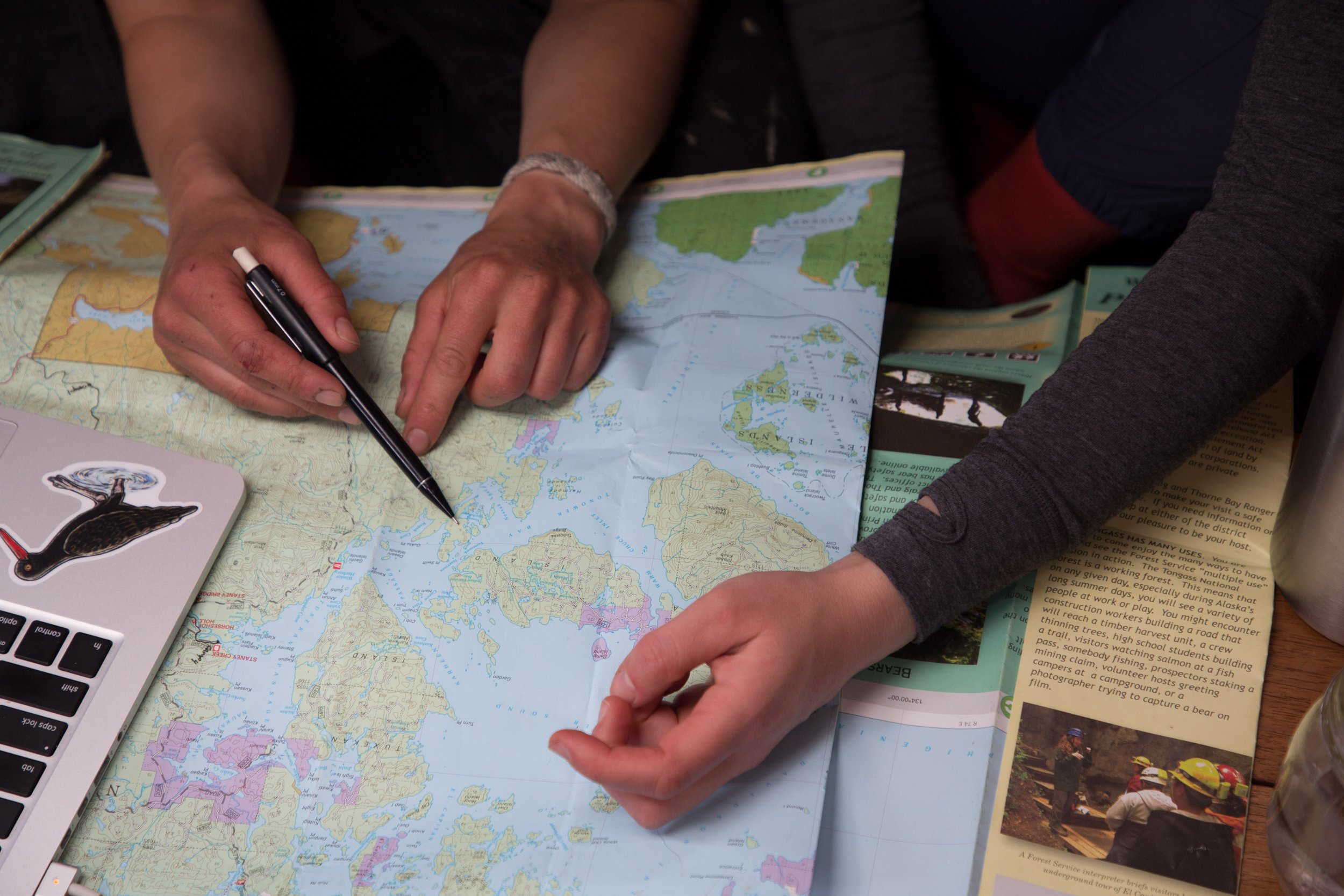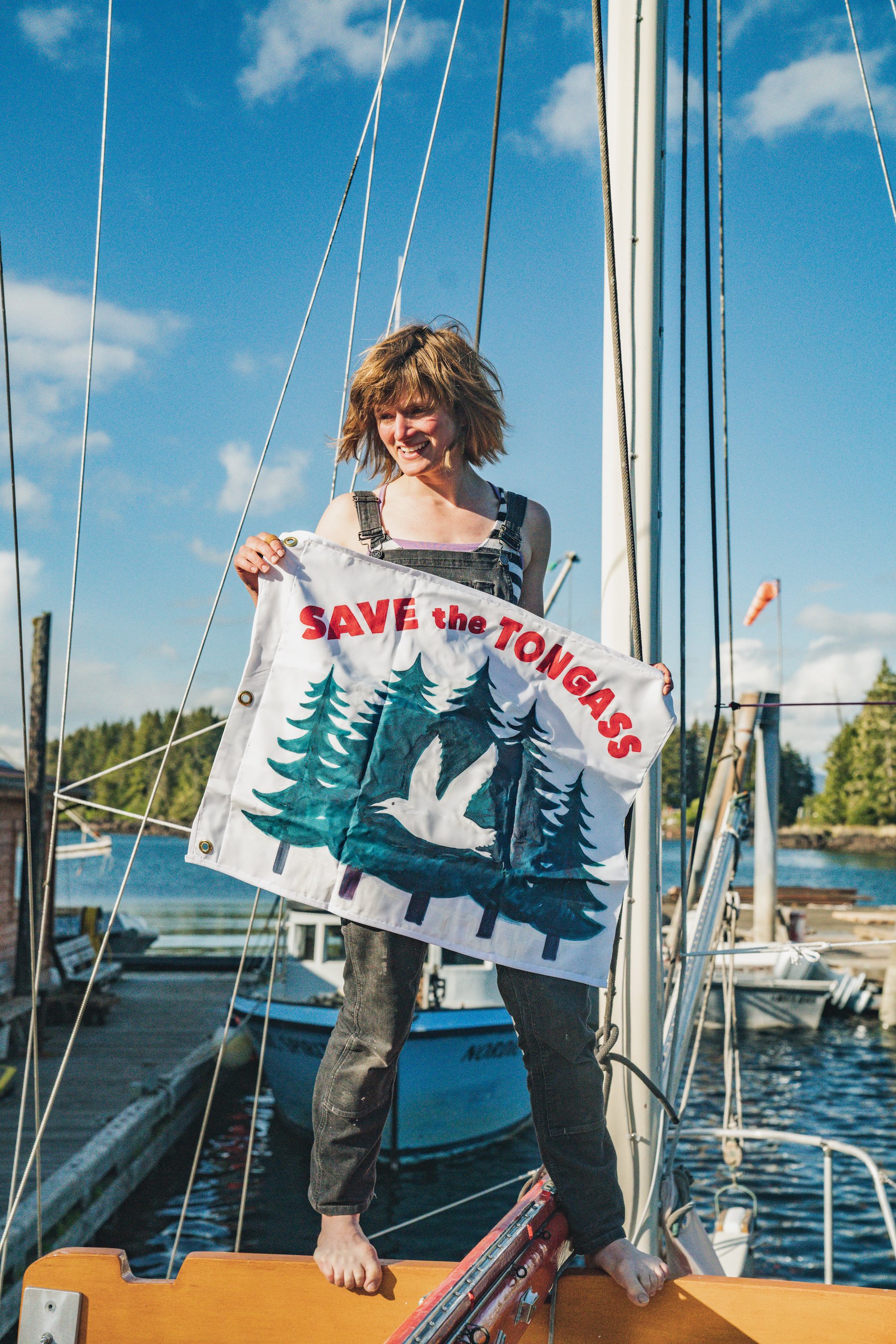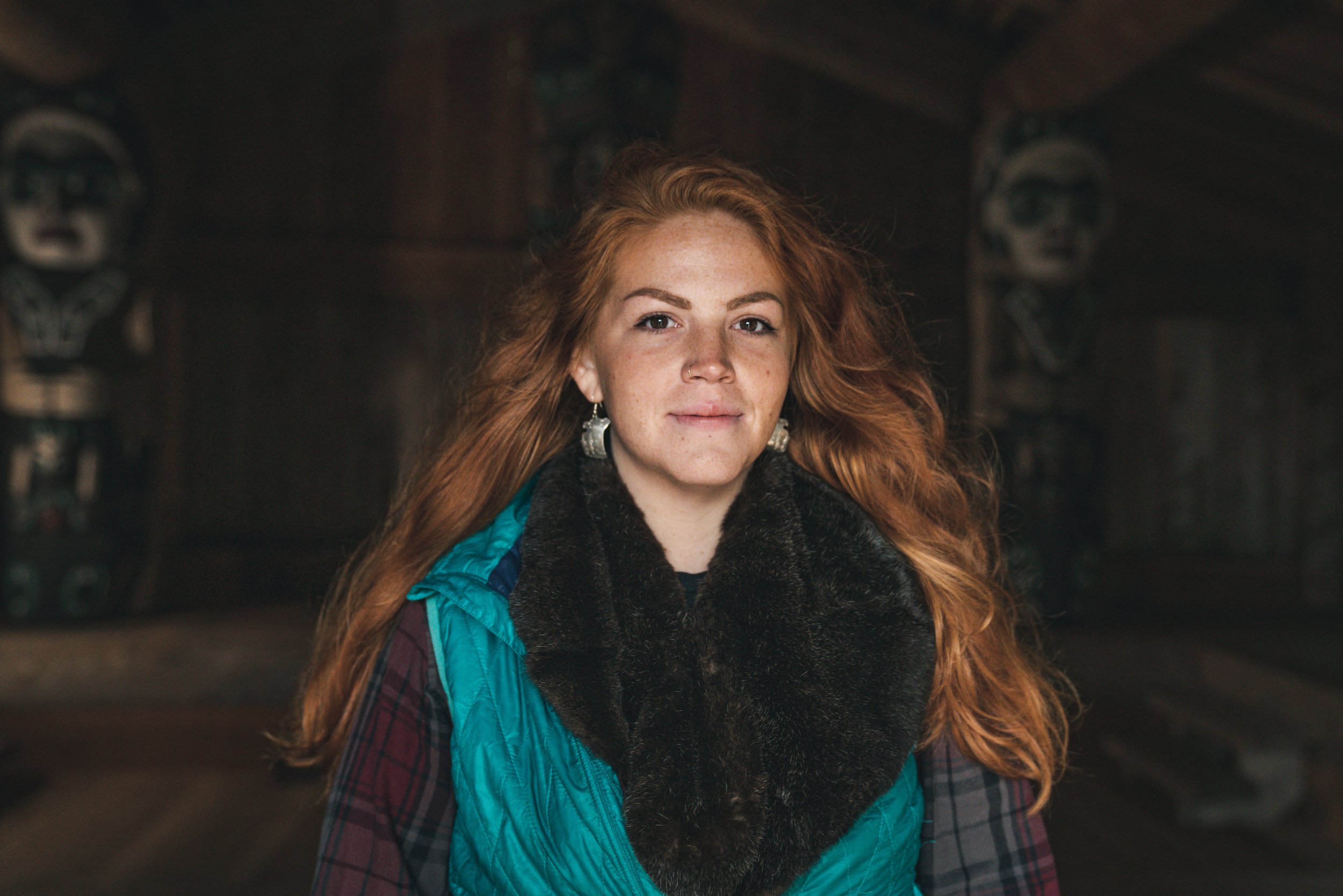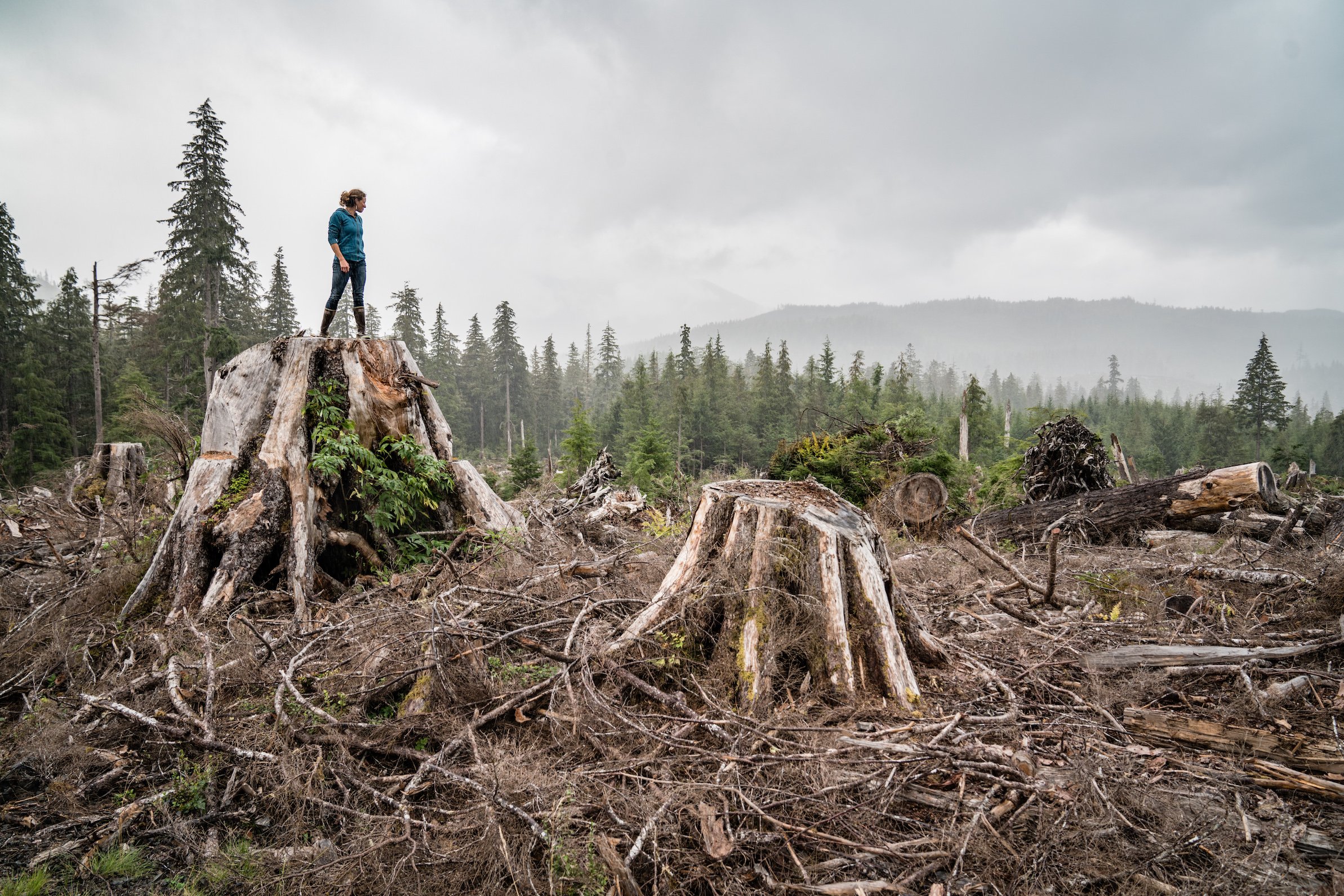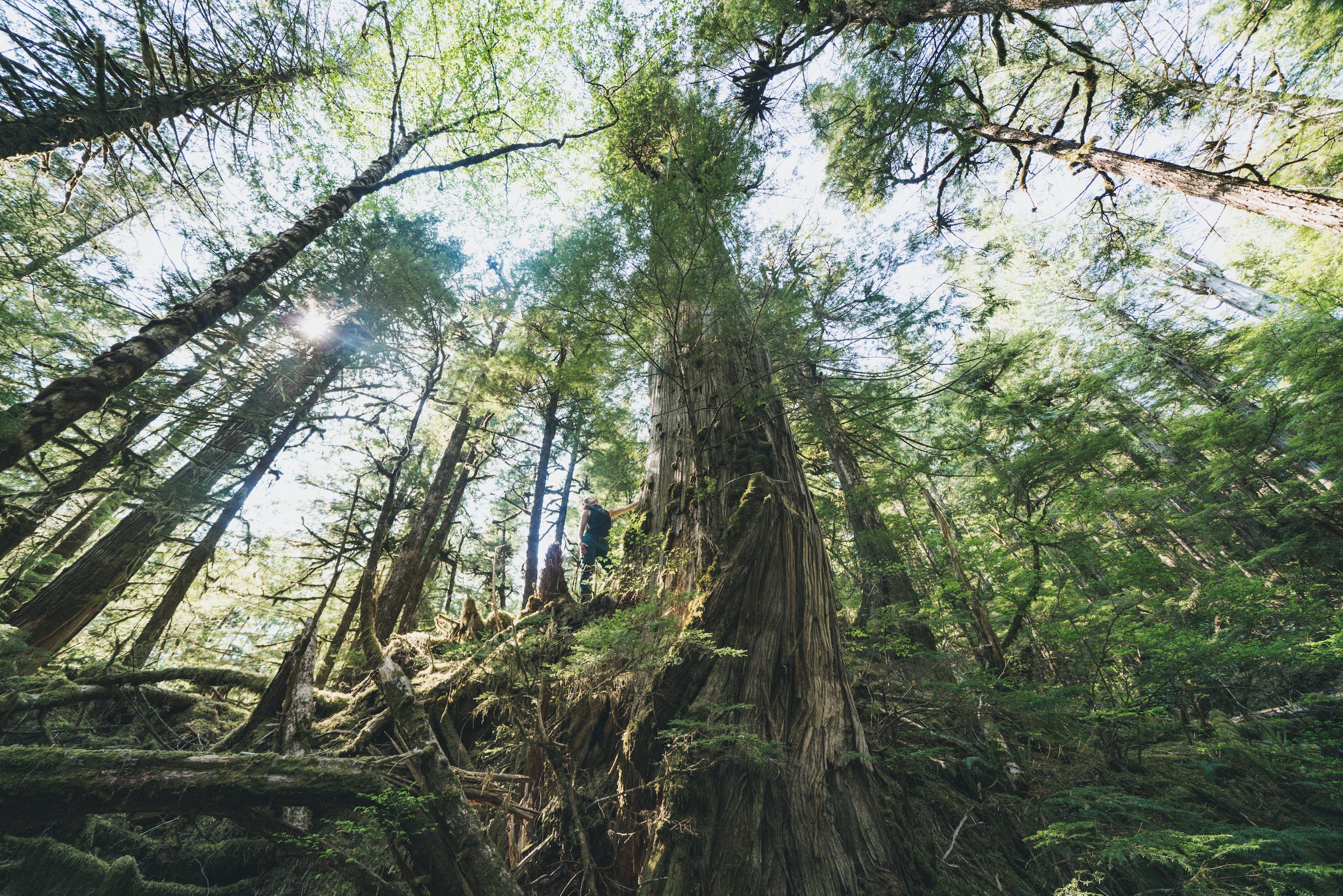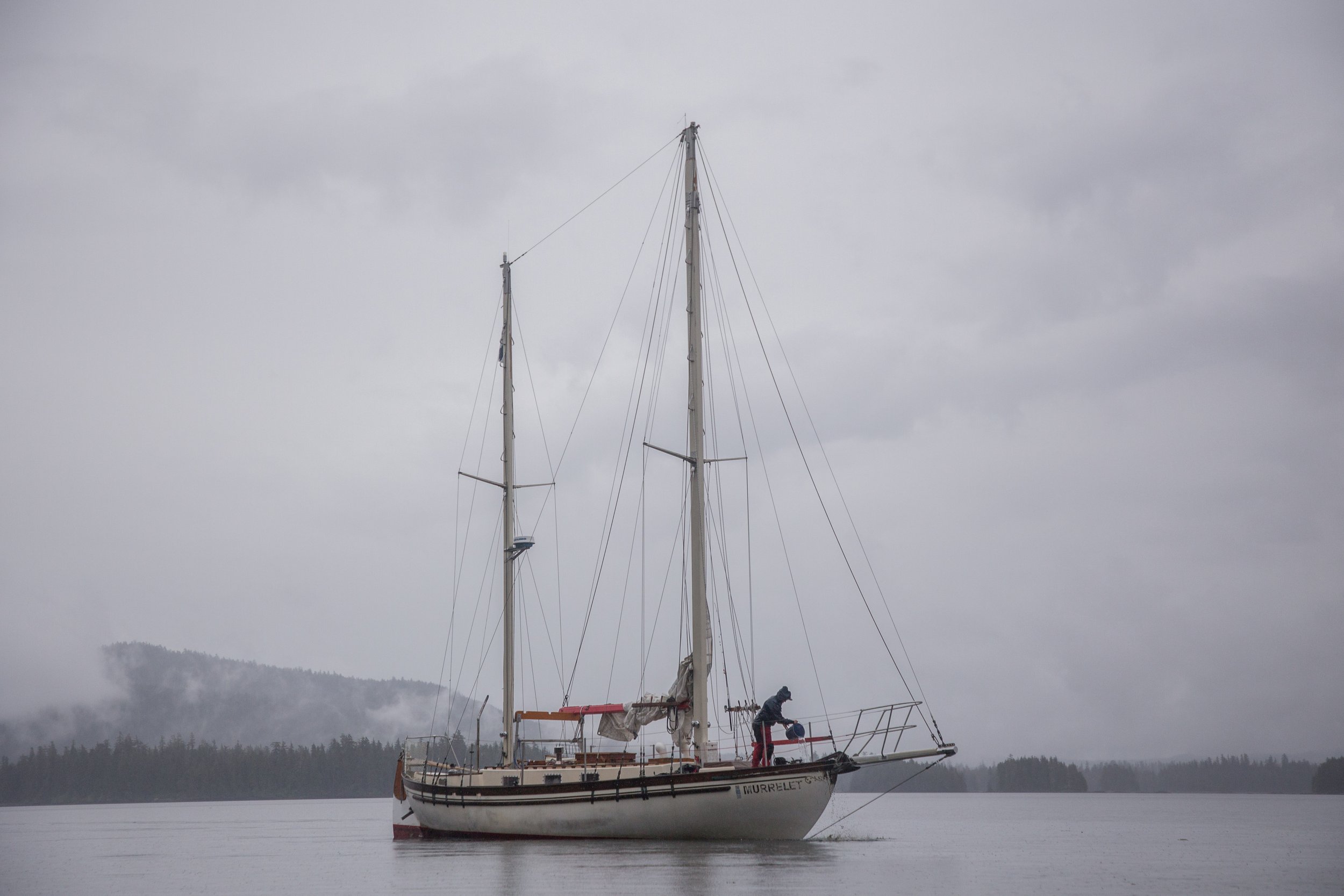The last Stands project
Ground-truthing: walking the ground to see for oneself if what has been told is true.
Bushwhacking with Backpacks (2017)
The Last Stands project was born in 2017, when Southeast Alaskan and commercial fisherman, Elsa Sebastian, realized that the ecological integrity of her home island, Prince of Wales, was threatened by a massive giveaway of public lands. The giveaway, championed by Alaska politicians and the timber industry would’ve transferred 2-million-acres of federal owned rainforest to the State of Alaska for logging and mining.
In an act of love and protest, Sebastian embarked on a 150-mile expedition to ground-truth the forests proposed to be turned into timberlands on her home island, Prince of Wales. Sebastian was joined by two other women, Dr. Natalie Dawson, a biologist who studies endemic species of the Tongass, and Mara Menahan, a botanical illustrator. The three women bushwhacked through the rainforest threatened by the proposed public lands giveaway and spent the next several years sharing what they’d learned from the land.
Listen to our ground-truthing story in this 2017 podcast episode from The Dirtbag Diaries.
Setting Sail to Ground-truth Roadless Areas (2019)
Twenty years ago, 9-million acres of the Tongass were protected by the Roadless Rule; a federal rule that prohibits roadbuilding and logging in un-roaded National Forest. In 2018, the US Forest Service announced that they were considering a change to this rule, and in 2020, despite overwhelming public outcry, the Trump Administration removed Roadless Rule protections from the 9-million acres of rainforest.
Natalie, Mara, and Elsa set sail in May 2019 to circumnavigate and ground-truth threatened “roadless” forests on Prince of Wales, the largest and most ecologically fragile island in Southeast Alaska. Wild Confluence Media joined the Last Stands crew for this journey; cinematographers Colin Arisman, and Gleb Mikhalev spent 30 days aboard the sailboat and camping in the forest as we circumnavigated Prince of Wales.
Along the 350-nautical-mile voyage, our team explored and documented roadless areas; and worked to better understand how roadless rainforest benefits wildlife, watersheds, and the cultural resilience of rural communities.


